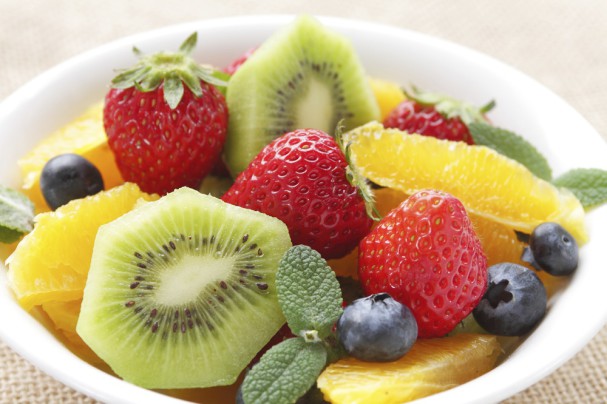According to a study by Tufts University in Massachusetts, we can train our brain to stop craving food that’s bad for us, to enjoy healthy food, and to only eat when we are hungry. Yes, you heard right – it’s simply a case of mind over matter! Our health expert Joanne Henson shares tips on how to kick start this brain boot camp.
Don’t rely on self-control
“You only need willpower when there’s something to resist,” explains Joanne. “If you can’t resist certain foods, avoid having them around you. Have only healthy food in the house, and if you’re eating out order only what you actually intend to eat. For instance, if you want to eat a grilled steak but no potato wedges, ask the waiter for salad instead – don’t have the wedges sitting on your plate to tempt you.”
Don’t eat food you don’t enjoy
“If you don’t like certain foods, don’t force yourself to eat them just because they are healthy,” Joanne says. “It’s okay if you don’t love lettuce and cottage cheese. Spend some time browsing the shop shelves and find other healthy food that you do like, or research different ways of cooking and preparing things to make them more enjoyable.”
Water is your friend
“If you’re dehydrated you’ll lack energy and your instinct will be to reach for a quick energy fix – usually sugary, salty, processed food,” Joanne continues. “Stay hydrated and you won’t experience the energy dips which drive you to search out unhealthy snacks.”
When you are full, stop eating
“Many people struggle with the idea of leftovers,” Joanne explains. “Of course it’s not good to waste food, but consider this – if you’re eating food you don’t need, then it’s just as wasted as if you’d thrown it in the dustbin.”
Low-fat isn’t always the best option
“Low-fat versions of food are generally more processed than the original food, and often the fat is replaced with sugar,” warns Joanne. “Sugar is addictive, and will cause chemical changes in your body which will have you craving more. Have the original version of the food, perhaps a smaller portion – you’ll feel more satisfied and you’ll be less likely to suffer cravings.”
Appreciate the benefits of healthy food
“All too often, when we make a healthy choice we focus more on what we’re missing than on what we’ve chosen,” Joanne adds. “For instance, feeling deprived of the chocolate cake on the menu when you’ve sensibly chosen fruit salad. But when you make a healthy choice you’re nourishing your body, avoiding weight gain and improving energy levels, to name but a few positives. Focus on the nutritional benefits of your food choices and consider it an investment in your long-term wellbeing.”
Let your fridge be a home to healthy foods
“When you’re hungry, your first instinct is often to search out a quick energy ‘hit’, usually sugary or processed, fatty food,” Joanne says. “Have some healthier food at hand, so that you’ll automatically reach for that before your mind turns to the unhealthy options.”


